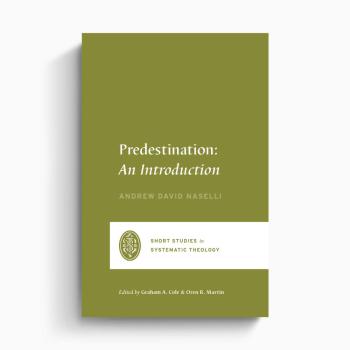Review of Biblical Theology in the Life of the Church by Michael Lawrence
What is biblical theology and why is it important to the local church? It’s easy to understand why theology in general is important since we need to know what we believe and apply certain biblical ideas to contemporary living. But when we talk about the importance of theology, I think we usually have in mind systematic theology (i.e., what does the Bible as a whole say about X?). In Biblical Theology in the Life of the Church, Michael Lawrence makes the case for biblical theology. He discusses not only its importance, but also how it is a necessary complement to systematic theology, as well as the tools biblical theology provides for us to read and apply Scripture.

The great strength of Biblical Theology in the Life of the Church (BTLC) lies in translating a potentially complicated, sprawling topic into digestible paragraphs that uphold the nuances in this discursive discipline. A basic example is how he defines “biblical theology”. Lawrence gives us three definitions from different authors:
“Biblical Theology is the branch of Exegetical Theology which deals with the process of the self-revelation of God deposited in the Bible” – Geerhardus Vos (p. 88)
“…biblical theology…seeks to uncover and articulate the unity of all the biblical texts taken together, resorting primarily to the categories of those texts themselves.” – D. A. Carson (p. 88)
“[Biblical theology] contends that to read the Bible as unified Scripture is not just one interpretive option among others, but that which best corresponds to the nature of the text itself, given its divine reveltion. As such, [biblical theology[, as a discipline, not only provides the basis for understanding how texts in one part of Scripture relate to all other texts, but it also serves as the basis and underpinning for all theologizing….” – Steve Wellum (p. 89)
After walking through these different definitions with their own emphases, Lawrence cuts through the attendant frills and offers his own simple definition: “Biblical theology is the attempt to tell the whole story of the whole Bible as Christian Scripture. It’s a story, therefore, that has an authoritative and normative claim on our lives, because it’s the story of God’s glory in salvation through judgment” (p. 89). The last phrase should be familiar to the Reformed crowd since Lawrence borrows it from Jim Hamilton’s famous thesis and book.
Lawrence structures BTLC as a handbook to help pastors do biblical theology themselves (though it remains accessible to lay members). Thus he starts the book not by actually doing biblical theology, but rather by explaining the tools. Lawrence does a great job in the book’s logical structure. He moves from exegetical theology to biblical theology, and finally to systematic theology, which mirrors the way we should reason through any Scriptural text (i.e., exegesis → biblical theology → systematic theology).
This groundwork is followed by examples of Lawrence tracing the biblical theology of five themes through Scripture: creation, fall, love, sacrifice, and promise. Finally, BTLC concludes with concrete case studies as applied to preaching certain texts and how local churches should think through contemporary issues such as missions, social justice, and counseling.
The heftiest part of BTLC is the “Tools that are Needed” section. Lawrence walks readers through how Scripture is structured around covenants, epochs, and canon, each engaging a larger historical context. Understanding where a text is situated–within which covenant, which epoch, and where in the canon–is a necessary antidote to irresponsible proof-texting. In addition, another set of tools include prophecy, typology, and continuity. Lawrence explains that prophecy may have multiple horizons of fulfillment (Isaiah being a perfect example). He describes the proper use of typology and how to guard against seeing types where there aren’t any. And he helps readers understand that there can be both continuity and discontinuity between the covenants (sometime promises are fulfilled by discontinuity).
I personally wish I had read this book before digging into meatier works like Geerhardus Vos’s Biblical Theology and Michael Horton’s Introduction to Covenant Theology. Don’t make the same mistake. If you’re new to biblical theology but are convinced of its necessity (and if you’re not, read BTLC’s introduction), pick up BTLC as an onramp to the Biblical theology highway. I would follow-up BTLC with either Graeme Goldsworthy’s According to Plan or Vaughan Robert’s God’s Big Picture.
I’ll conclude this review with Lawrence’s own final sentences: “Biblical theology is useful theology. Biblical theology is theology at work. So pick up your Bible, and let’s get to work” (p. 217).












